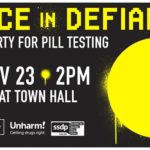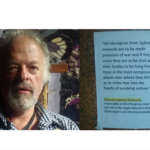McLibel: Taking On a Fast Food Giant

In 1986, “London Greenpeace”, a small environmental campaign group, begun distributing a pamphlet outside McDonald’s stores around the city. ‘What’s wrong with McDonald’s: Everything they don’t want you to know’ quickly became one of the most popular political pamphlets of the time – drawing the ire of McDonald’s executives around the country for its criticisms of the company.
Shortly afterward, McDonald’s brought libel proceedings against five members of the group, Paul Gravett, Andrew Clarke, Jonathan O’Farrell, Helen Steel and David Morris, for distributing the pamphlet. The case followed several similar situations where McDonald’s had threatened to sue other critics, including the UK’s Channel 4 television and several major publications.
Under English defamation law, the burden of proving the literal truth of every disparaging statement is on the defendant. This must be proved ‘on the balance of probabilities’; in other words, that it is more likely than not. This can be an expensive and time-consuming process.
Three of the charged individuals (Gravett, Clarke and O’Farrell) chose to apologise to McDonald’s. But Steel and Morris refused, choosing to defend the case.
The original case, now known as McLibel, went on to become the longest running legal battle in English history.
“I fought Mclibel because I didn’t like the idea that a huge corporation was bullying its critics into silence,” Ms Steel told Sydney Criminal Lawyers® while on a recent visit to Sydney.
“It’s hugely important that people are free to criticise huge multinational corporations which are dominating our lives and our planet,” she said.
McLibel: The Trial and Aftermath
The original case lasted for over 10 years, and saw McDonald’s spend an estimated £10 million on legal costs. Throughout that time, Steel and Morris were denied representation from legal aid for the case, forcing them to represent themselves. They managed to raise £30,000, which they used to cover travel and lodging expenses for the witnesses they called to verify their claims.
On 19 June 1997, the Hon. Mr Justice Rodger Bell found largely in favour of McDonald’s – but for them, it was a mixed victory. Although Steel and Morris were found liable on several points, the judge found that some of the points made in the pamphlet were true.
Further, although the decision awarded £60,000 to the company, McDonald’s legal costs were much greater, and the defendants lacked the funds to pay it.
The disparity between McDonald’s legal resources, and the money spent by Steel and Morris, would later lead to the European Court of Human Rights striking down the original case, claiming it breached Article 6 (right to a fair trial) and Article 10 (right to freedom of expression) of the European Convention on Human Rights.
The case also turned out to be a PR disaster for McDonald’s, who had unintentionally given a megaphone to the group to publicise their cause. The backlash against the fast food giant was later dubbed the ‘worst corporate PR disaster of all time.’
“By the end of the case there was a huge mass defiance campaign.” Ms Steel told Sydney Criminal Lawyers®.
“Over two-thirds of McDonald’s stores in the UK were picketed on the Saturday after the verdict. Millions of pamphlets were handed out and McDonalds realised that they needed to back down or they were going to make matters worse for themselves.”
Defamation in NSW
The law in relation to civil defamation – which deals with suing for comments that hurt or damage reputation – differs between the states and territories. In New South Wales, the laws surrounding civil defamation are contained in the Defamation Act 2005 (NSW).
Defamation is said to have occurred when one person communicates, by words, photographs, video, internet, illustrations or other means, material which could affect or damage the reputation of another.
A person bringing a claim of defamation must prove that:
- The communication has been published by the defendant;
- The communication has been published to a third person;
- The communication identifies or is about the plaintiff; and
- The communication is defamatory.
The Court is then required to decide whether the subject material is indeed defamatory. It does so by determining whether the material:
- Is likely to injure the reputation of the plaintiff by exposing him or her to hatred, contempt or ridicule.
- Contains a statement about the plaintiff which would tend to make the plaintiff be shunned or avoided, and
- Has a tendency to lower the plaintiff in the estimation of others.
In instances where defamation is proven, there are a range of defences under both common law and the Act itself.
However, defending against charges of defamation is often a costly process – especially against larger opponents with more money to spend on lawyers. Often, those accused of defamation are forced to apologise and withdraw their statements, even if they are true, or settle out-of-court.






